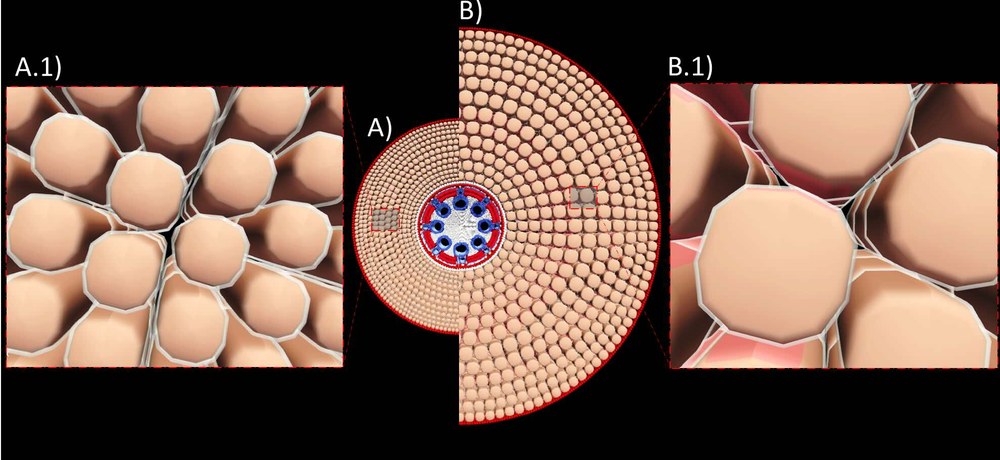
Root cortical cell size is determined by both cortical cell diameter and cell length.
Authors
Sidhu JS, JP Lynch.
Source
The Plant Journal, first published: 10 February 2024
Download Options
open access from The Plant Journal
Abstract
It has been hypothesized that vacuolar occupancy in mature root cortical parenchyma cells regulates root metabolic cost and thereby plant fitness under conditions of drought, suboptimal nutrient availability, and increased soil mechanical impedance. However, the mechanistic role of vacuoles in reducing root metabolic cost was unproven. Here we provide evidence to support this hypothesis. We first show that root cortical cell size is determined by both cortical cell diameter and cell length. Significant genotypic variation for both cortical cell diameter (~1.1 to 1.5-fold) and cortical cell length (~ 1.3 to 7-fold) was observed in maize and wheat. GWAS and QTL analyses indicate cortical cell diameter and length are heritable and under independent genetic control. We identify candidate genes for both phenes. Empirical results from isophenic lines contrasting for cortical cell diameter and length show that increased cell size, due to either diameter or length, is associated with reduced root respiration, nitrogen content, and phosphorus content. RootSlice, a functional-structural model of root anatomy, predicts that an increased vacuolar:cytoplasmic ratio per unit cortical volume causes reduced root respiration and nutrient content. Ultrastructural imaging of cortical parenchyma cells with varying cortical diameter and cortical cell length confirms the in-silico predictions and shows that an increase in cell size is correlated with increased vacuolar volume and reduced cytoplasmic volume. Vacuolar occupancy and its relationship with cell size merits further investigation as a phene for improving crop adaptation to edaphic stress.

